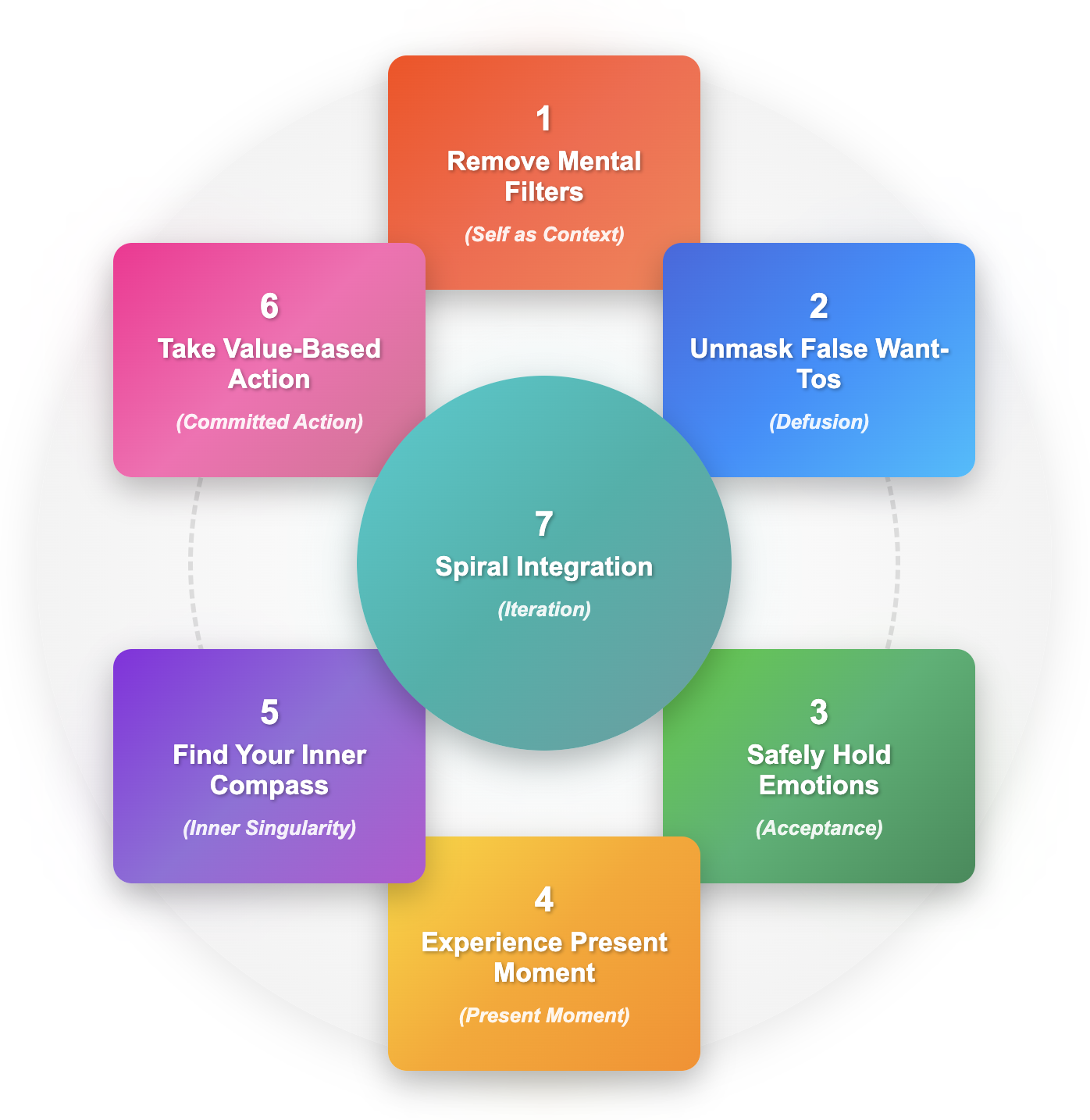Integrated Approach of Cognitive Science and Behavioral Analysis
"I keep repeating the same thought patterns"
"I can't take value-aligned actions because I'm controlled by emotions"
"My thoughts and self have become fused together"
"My quality of life is declining due to insufficient psychological flexibility"
These challenges indicate psychological inflexibility arising from cognitive fusion and experiential avoidance. When SDT's three basic psychological needs (autonomy, competence, relatedness) are threatened, avoidance behaviors increase, forming Emotional Addiction (emotional dependency patterns, corresponding to ACT's experiential avoidance) and functioning as Emotional Blockers (emotional inhibitory factors, corresponding to ACT's psychological inflexibility). Traditional coaching often remains at the surface level of motivation enhancement, but by integrating insights from cognitive science and behavioral analysis, we can achieve deeper transformation.
Integration of Cognitive Defusion and Values-Based Action
Cognitive defusion techniques promote the separation of thoughts and self, with clinical research reporting moderate effects. While this program is not medical treatment, it can be applied to performance enhancement in healthy individuals.
The practice of values-based action has been reported to be associated with improved life satisfaction and well-being. Research showing associations with workplace engagement enhancement is also increasing.
Reduction in experiential avoidance enables action selection without being dominated by difficult emotions and thoughts, with expected improvements in decision-making processes.
By integrating these scientific insights into coaching, we can achieve a richer and more meaningful life through enhanced psychological flexibility and practice of values-based action.

Research has reported that enhanced psychological flexibility is associated with improved stress tolerance, creativity, and problem-solving abilities. However, true transformation comes from identifying and releasing Emotional Addiction that arises from cognitive fusion and experiential avoidance.
By integrating an approach based on insights from cognitive science and behavioral analysis into coaching, it becomes possible to systematically enhance individual psychological flexibility and promote a richer and more meaningful life by releasing Emotional Addiction that arises from cognitive fusion and experiential avoidance.
